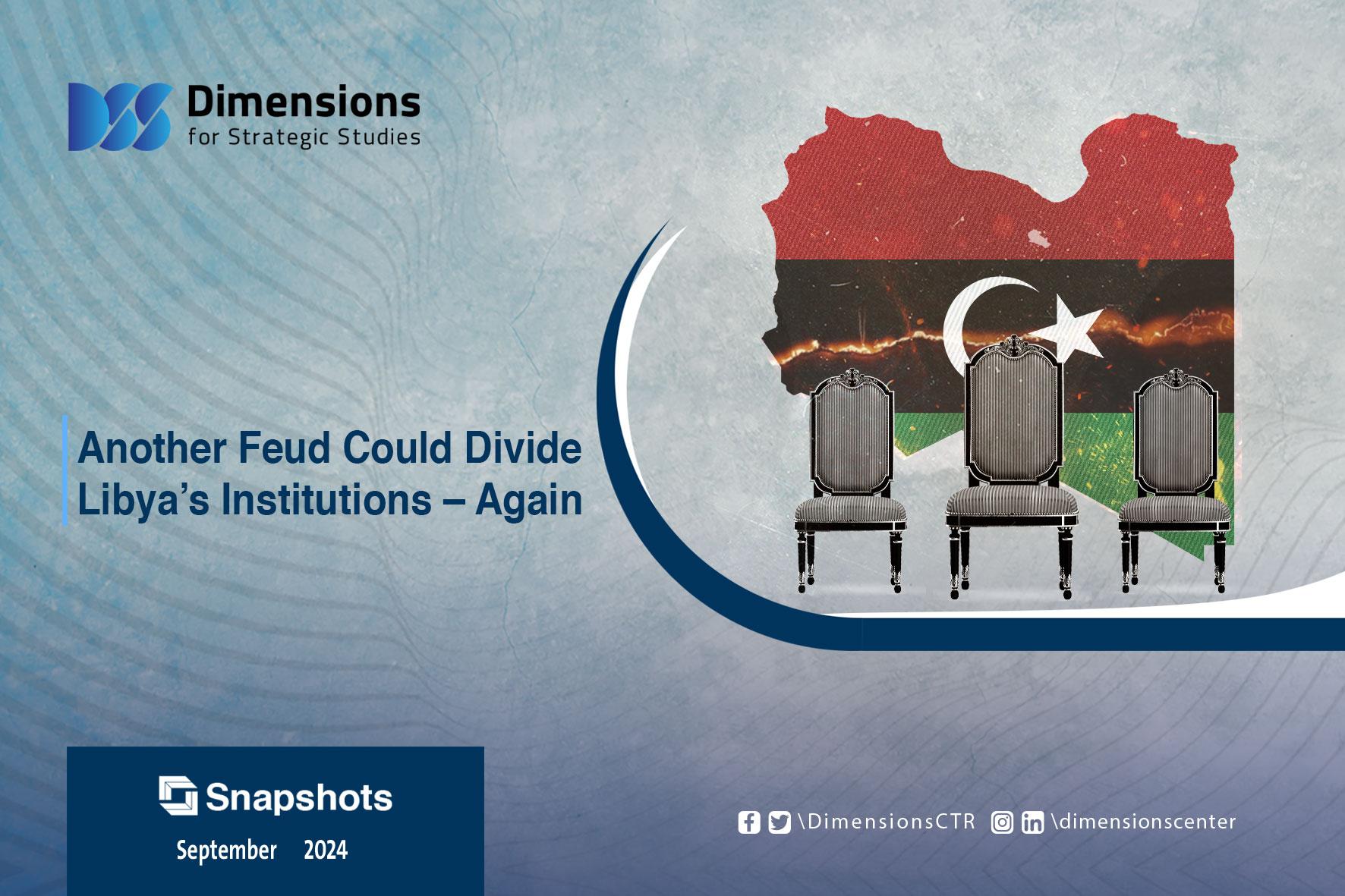
Another Feud Could Divide Libya’s Institutions – Again
2024-09-055190 view
Divisions within war-torn Libya’s western camp came to a head in August and early September, fueled by elections for the presidency of one of the war-torn country’s key governing bodies and the ouster of Central Bank Governor Sadiq Al-Kabir by the so-called Government of National Unity.
In early August, elections for the presidency of the High Council of State saw the council’s former head Khaled al-Mishri beaten by a single vote by Mohammed Tekala, who is close to Dbeibah. Al-Mishri’s supporters protested that the deciding vote violated electoral law because it had writing on the back; Al-Mishri insisted that the paper was invalid and therefore that he had won the election.
But Tekala refused to back down and insisted on taking office, despite Al-Mishri holding a session at which 67 members of the council voted to invalidate the disputed paper.
At the end of the month, another standoff further complicated matters. The three man Libyan Presidential Council, in coordination with Dbeibah and key armed factions in western Libya, moved to oust the governor of the Central Bank, Sadiq Al-Kabir. The top banker was forced to flee to Türkiye along with some of his staff, leaving his deputy Marei al-Barassi sitting in as governor until the eastern-based parliament and the HSC can agree on a permanent replacement. Al-Kabir, meanwhile, insists that he is still in office and can work remotely.
These renewed divisions largely stem from Dbeibah’s fears that a coalition, backed by regional powers, is forming with the aim of removing him from office. Such an alliance could consist of the Speaker of the House of Representatives Aguila Saleh, along with Al-Kabir and Al-Mishri. Many western Libyan officials believe that once in full control of the HCS, Al-Mishri could reach a deal with Saleh to dissolve Dbeibah’s administration and establish a new government of national unity, presenting it to world powers as being approved by both parliament and the HCS.
This is why Dbeibah and his ally Mohammed Al-Menfi, the former head of the Presidential Council, along with Takala, have refused to accept defeat at the HCS election, and continue to insist on replacing the head of the Central Bank in order to undermine any deal among the rival triumvirate of Saleh, Al-Mishri and Al-Kabir.
All this is likely to lead divide the High Council of State and obstruct the work of the Central Bank, as each side digs in and seeks to maximize its gains. While complex, the division is reminiscent of similar previous scenarios in Libya, where institutions have repeatedly been divided as a result of conflicts between the East and West, leading to the rise of rival governments, rival armies and even rival central banks. These differences are unlikely to be resolved without effective intervention by international actors and the United Nations.





